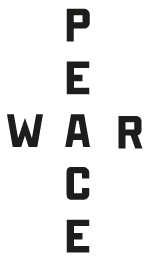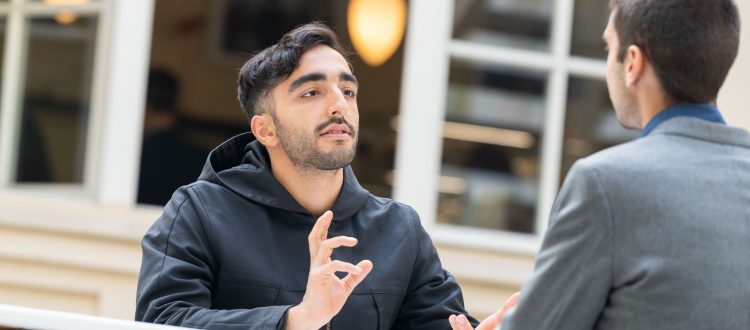Theatre in Action – an Interview with Malzum Nergiz
The Italian journalist Francesco Lanzone of the European Youth Press interviewed the dramaturg and organiser of the WAR AND PEACE Festival Mazlum Nergiz. Read the full interview here.
How did you get involved with the work of the Gorki Theater?
I work for Gorki since 2014. I studied comparative literature and cultural anthropology in Berlin. During my degree I gained some experience in assisting directors from all over Germany. At that time, I was trying to find out which kind of theatre I would like to do. Eventually, I ended up in the dramaturgy department, which is sort of the brain of the theatre because it conceptualises plays, creates the programme and the content. It’s 100 percent project based work.
How did the Gorky Theatre come to the idea of commemorating the anniversary of the end of WW1 with such a diverse program?
This festival is a follow up of Europe 1914 where we organised in collaboration with the bpb a similar festival. It was about how different European countries, societies and artists looked at the way WWI came about. Four years later, we decided to continue this collaboration. We said.. ok, for 2018, we want to look at the way the war officially ended, and how border conflicts and civil wars continued. We wanted to look at 1918 as the mark of the end of the great war, but also how the continuum of violence after 1918 shaped the political culture and language of not only Europe but the whole world.
The performance of the Roma Armee presented a multidimensionality of identity: We have Romas from different countries, different sexual identities, different fears and dreams. How important is the representation of such multidimensionality in the field of art, politics and ultimately history.
I do think this polyphony of voices is of upmost importance because it can show that there is no normative experience for anybody. By inviting artists from all over the world and different social backgrounds we introduced a very subjective, individual perspective. For example, we have artists coming from Georgia, Tanzania, Turkey or Bulgaria. For the artistic production, it is interesting to see where these artists share commonalities and where are their differences. This communication level is very interning to me. I believe that talking about war is actually quite banale. War is the same all over the world. Cynically speaking, the practices of war are boring in a way because they are the same everywhere. The power of theatre is bringing different voices together and to show what happened after the was officially declared to be over. How is the everyday life shaped by your trauma? How are politics impacted by these cruelties? What happens to the mindset of the people? These emotive aspects go beyond what history books can tell you.
Why does the artistic representation of minorities in Europe matter?
For me, it is very instructive to look at minorities not from a general point of view but specific, exemplary cases because their stories belong to society as a whole. Theatre can display from an intersectional point of view how complex forms of oppression cause the formation of identity. It prevents the tendency of reducing history to a single narrative.
What are your hopes for the Festival?
My hope for the festival is to make a speech for the permanent presence of the past. We must understand the pattern of continuity from the past in order to forge a powerful resistance against violence.
Photo: bpb / BILDKRAFTWERK / Laurin Schmid
edited by Dominik Rehbaum

